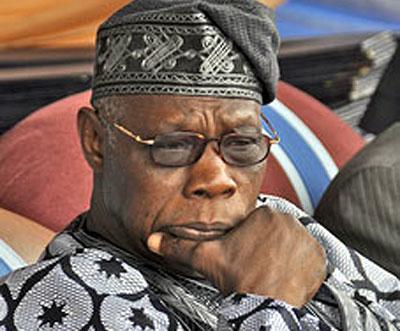The National Human Rights Commission (NHRC) will hold a public hearing on ex-President Olusegun Obasanjo’s letter to President Goodluck Jonathan, it was learnt yesterday.
The President referred the letter written to him by Obasanjo last December to the NHRC, asking that aspects of the letter that concern human rights abuses be investigated.
The ex-president alleged that snipers were being trained on behalf of the administration ahead of the 2015 general elections.
He also alleged that about 1000 Nigerians had been put on a political watch list.
Rivers State Governor Rotimi Amaechi also complained about the conduct of Police Commissioner Mbu Joseph Mbu, whom he accused of breaching human rights with the manner he operates in the oil producing state.
Yesterday, the commission constituted two panels to investigate the allegations.
The commission constituted the panels at an extraordinary emergency meeting of its Governing Council held in Abuja.
A five-man panel, headed by the council’s Chairman, Prof. Chidi Anselm Odinkalu, is to examine the letter. Other members are the NHRC’s Secretary, Prof Bem Angwe and three council members – Mrs. Eugenia Abu, D.O.C Ezeigwe and Alhaji Ibrahim Nikau.
The three-man panel headed by Mr. Kayode Komolafe will investigate the Rivers crisis protest letter by Governor Rotimi Amaechi. Other members are Mrs. Rita Ifeyinwa Njokanmma and Mr. Eric Bell-Gam.
The commission said it had authorised its secretary Angwe to immediately issue an invitation or call for memoranda on the terms of reference of the panel on the Obasanjo letter.
The council decided that the panel’s inquiry shall be in public and that a calendar and schedule for the public sittings of the inquiry shall be announced when the commission determines.
The Odinkalu led panel is to determine:
•whether or not there is or have been state-sponsored killings or assassinations in Nigeria at any time since November 1995 to date;
•if so, what organisations, institutions, agencies or persons were or are involved in or affected by such killings;
•whether there is or has been at any time since November 1995, a list of persons to be targeted for watching or for such killings;
•if, in any of such cases, the perpetrators, known or unknown, were brought to justice or assisted, facilitated or helped by any persons or institutions to evade justice;
•whether the victims of any such killings were or have been afforded access to truth or to effective remedies; and
•undertake any other or further tasks related to or necessarily incidental to the foregoing.
The NHRC said it considered the deepening crisis in Rivers State and concluded that the situation called for urgent action to verify the facts and stem any further deterioration.
The panel on the Rivers crisis is to undertake a verification mission to the state. It is to:
•identify and verify the facts and actors involved in the ongoing crisis in Rivers State and any violations of human rights connected therewith;
•identify and interact with all parties or actors connected with or affected by the crisis;
•recommend any interim measures to ameliorate or prevent further escalation of the situation into serious or massive violations of human rights; and
•undertake any other or further tasks related to or necessarily incidental to the foregoing.
The NHRC’s council authorised “the verification mission to work on an expedited time scale and report back to the next regular meeting of Council before the end of February 2014”.
The Attorney-General of the Federation (AGF), Mohammed Adoke (SAN), on December 23, last year, following a directive by President Jonathan, referred the Obasanjo letter to the NHRC to investigate allegations contained in the letter.
“In taking cognisance of the HAGF’s (Honourable Attorney General of the Federation) referral, Council made it clear that Rule 79(2)(e) of the Standing Orders and Rules of Procedure the Commission provide for the HAGF or Attorneys-General of States to refer appropriate cases to the Commission.
“Council is at all times guided also by the provision of Section 6(3) of the National Human Rights Commission Act (as amended) that ‘In exercising its functions and powers under this Act, the Commission shall not be subject to the direction or control of any other authority or person.’
“ Council considered the allegations contained in the transmission from the HAGF to be quite weighty and grave and concluded that they raise issues of serious and systematic violations of the rights to life, access to fair hearing and justice, personal liberty, safety and security, equality before the law and the prohibition against discrimination.
“Following comprehensive deliberations, Council decided, in exercise of its powers under Sections 5 and 6 of the National Human Rights Commission Act (as amended) and in accordance with Rule 79(2)(a), (c) and (e) of the Standing Orders and Rules of Procedure of the Commission to constitute a panel to inquire into the case,” the statement said.
 Hottestgistnaija.com
Hottestgistnaija.com





